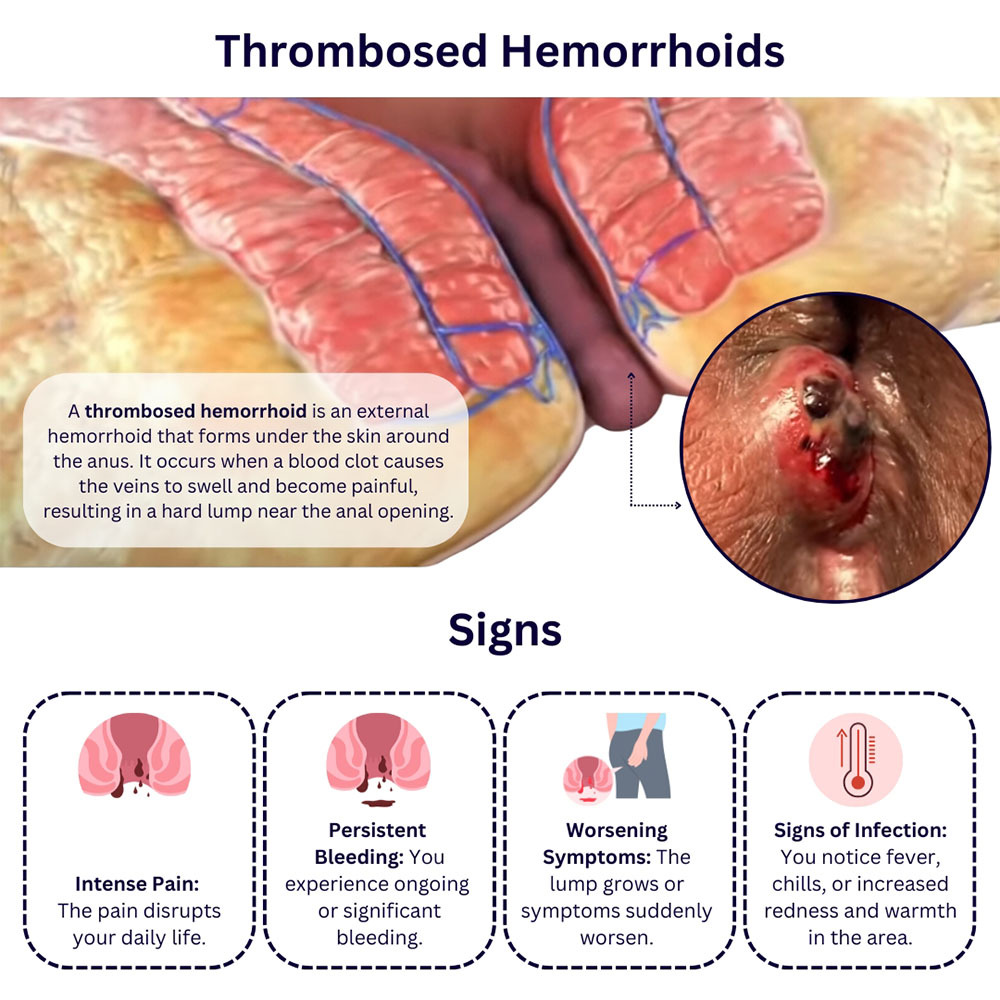
Hemorrhoids are uncomfortable enough, but when they become hard and swollen because of a blood clot, they’re said to be thrombosed and even more of a problem. Fortunately, a vein center in Brooklyn offers relief from thrombosed hemorrhoids. Call Astra Vein & Fibroid Treatment Center to talk to a top varicose vein doctor in Brooklyn about treatment. This vein clinic in Brooklyn is the best source for any vein conditions you or your family members encounter. Dr. George Bolotin, an experienced vascular specialist in Brooklyn, offers safe, effective treatments for hemorrhoids, varicose veins and fibroids.
A thrombosed hemorrhoid is a specific type of external vein condition that develops under the skin around your anus. They become thrombosed when the veins in this area become painful and swollen due to a blood clot. You may notice a hard lump near your anal opening, which is the thrombosed hemorrhoid itself.
This lump varies in size and may be sensitive to touch. Thrombosed hemorrhoids are not dangerous, but they can be quite painful and may lead to rectal bleeding if they become ulcerated. Thrombosed hemorrhoids can sometimes resolve on their own.
Medical intervention is necessary, however, if you have signs of a thrombosed hemorrhoid and:
Whether you’re wondering, how you can get rid of hemorrhoids fast or when you should see a doctor, Astra Vein & Fibroid Treatment Center in New York City provides a full range of care options and customized treatment plans.
The vascular specialist in Brooklyn, NY, Dr. George Bolotin guides you through everything you need to know about hemorrhoids, including understanding the grading system and treatment for bleeding hemorrhoids.

Blood clot formation creates pressure on the surrounding tissues, which makes the area more sensitive. You experience uncomfortable itching that might have been mild, but that rapidly intensifies. In contrast, internal hemorrhoids develop inside your rectum under more protected tissue. You might not feel physical discomfort though you may notice blood in your stool.
With thrombosed hemorrhoids, you may experience a sudden increase in symptoms due to factors like:
Practicing good hygiene helps you avoid further irritation. You must gently clean the area with warm water after bowel movements and pat it dry. Your doctor at this vein clinic in Brooklyn advises you to avoid soaps or wipes with alcohol or fragrance as these can worsen your irritation. If home treatments
When an external hemorrhoid becomes thrombosed, the blood clot prevents normal blood flow, which increases pressure within the hemorrhoid. This pressure combines with the lack of circulation that hardens the tissue and creates a lump near your anus. Blood clots are semi-solid clusters formed by platelets and specific proteins in your blood, typically in response to an injury.
The hardening of a thrombosed hemorrhoid affects surrounding tissues in several ways, such as:
Your vein center in Brooklyn doctor may suggest stronger anti-inflammatory medications or pain relievers to help you manage the pain and reduce swelling. If your pain becomes unbearable, your vein doctor in Brooklyn may recommend a surgical procedure to carefully extract the clot.
If conservative treatments aren’t providing relief or if your thrombosed hemorrhoid is particularly painful, you may need to consider surgical options like sclerotherapy or rubber band ligation that can be effective for external thrombosed hemorrhoids. In this procedure, a rubber band is placed around the base of the hemorrhoid to cut off blood supply. This shrinks hemorrhoids so they eventually fall off. This method may not provide you quick relief, but it can be useful for long-term management.
Your Brooklyn vein center may perform a thrombectomy or another procedure to entirely remove the clot. During a thrombectomy, Dr. Bolotin makes a small incision in your hemorrhoid to drain the trapped blood. You won’t need anesthesia for this procedure. However, if you wait too long to schedule your appointment, you might miss the opportunity for this simple treatment to relieve your discomfort. It’s best to have the procedure within 72 hours of the blood clot forming for optimal results.
If you’re not a good candidate for a thrombectomy, other effective home remedies and over-the-counter treatments to ease your discomfort may include:
Dr. Bolotin, a varicose vein specialist, has established himself as the leading vascular expert in Brooklyn and the Bronx, NY. Contact Astra Vein & Fibroid Treatment Center today and get immediate relief from pain.
Vein & Vascular Medical Care
4209 Ave U, Suite A.
Brooklyn, NY 11234
(347) 934-9068
Vein & Vascular Medical Care
869 E Tremont Ave
Bronx, NY 10460
(929) 447-4563